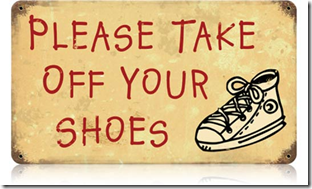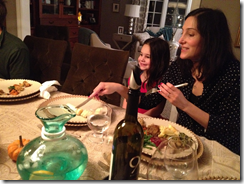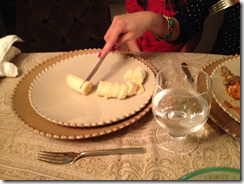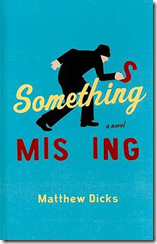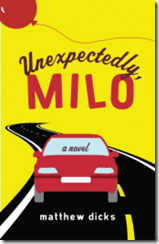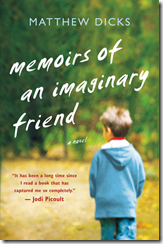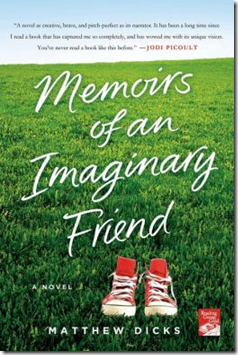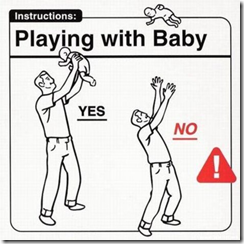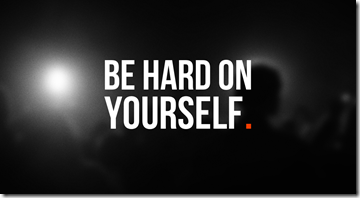Author M. Molly Backes recently asked the following question on Twitter:
@mollybackes: How many male authors, after speaking brilliantly for an hour about writing and literature, have been asked publicly about their clothes?
It’s a fair question. Let me first go on the record as saying that I don’t support questions like this in any way.
Actually, that’s not true. I support these kinds of questions in full when they are asked of me. I specifically request that audiences to ask me challenging, odd and unique questions, related or unrelated to my books, and I reward them with prizes for doing so. I love questions that confound and confuse me me. They often lead to interesting exchanges and the opportunity for me to tell often untold stories.
The only clothing-related question I was ever asked was “Boxers or briefs?” But that lady wanted the prize badly. I don’t think she possessed any genuine curiosity about my underwear.

All that said, I’d like to suggest that the reason that male authors don’t receive questions about their clothing is rather simple:
While there are exceptions to this rule, fashion tends to be a conversational topic dominated by women.
Men rarely speak about their clothing, and women speak of it often.
Having spent the last fifteen years in an elementary school where more than 90% of my friends and colleagues are women, and having also attended an all women’s college prior to that, I’ve grown the understand the dichotomy in male and female communication well.
I’m actually writing a book about it with a sociologist.
What’s become exceptionally clear to me after all these years is that women (not all, but a great majority) speak about fashion and physical appearance a lot. They compliment one another on their clothing. They remark on new hair styles. They comment on shoes and jewelry. They admire boots and scarves. They ask about the origins of specific articles of clothing with incredible frequency. In fact, the typical response to a compliment like, “I love that sweater,” is “Thanks, I got it as such and such a place.”
Comments about fashion and physical appearance are a large part of female socialization. It’s a topic that is mentioned often.
This is a reason that fashion magazines are written primarily for women.
This is the reason that two of the most popular fashions in the country, Marie Claire and Elle, actually have women’s names.


This is a reason that I am the only man I know who watches Project Runway. More than 80% of the show’s audience is female. And the percentage of women who watch the Academy Award’s red carpet fashion pre-show are even higher.

Women talk fashion. Not all of them, but in comparison to men, the number is huge. Clothing is a female topic of conversation.
This is simply not the case for men. We almost never discuss or ask about clothing. This is not meant to imply that men’s topics of conversation are more sophisticated or erudite than women. Just different.
So while it’s inappropriate, rude, and ridiculous to ask a female author about her clothing during the Q&A portion of her book talk, it also makes perfect sense that if someone is going to be asked, it’s going to be a female author and not a male author.
No one, man or woman, ever asks me about my clothing, on or off the book circuit. I don’t ask anyone about their clothing. It’s just not a realm in which men frequently operate.
Before you chop my head off for making such assertions, consider this:
A female author spends an hour talking to her audience. She is engaging, informative, and amusing. The audience asks pertinent and insightful questions. Everyone is happy.
Ten minutes later, that same female author is sitting at a nearby table, signing books. A female reader approaches. She hands over a book for the author to sign, compliments the author on her work, describes her favorite part of the story, and then says, “By the way, I love your sweater? Did you knit it yourself?”
“No,” the author says. “I only wish I could knit something like this.”
“It’s beautiful,” the reader says. “Where did you get it?”
This exchange would seem perfectly normal to both the author and the reader. No one would think twice about it.
But now try to imagine the same exchange if either the author or the reader (or both) were male. It would almost never happen. But with two women, the conversation seems commonplace and unremarkable.
While it’s inappropriate to ask the same question about the sweater in the middle of the author’s presentation, it’s important to note that we’re not talking about an entirely inappropriate question.
We’re only talking about a matter of timing.
Asking the question during the presentation is not good. Asking it after the presentation is fine.
It should also be remembered that the reader who asks the clothing question during an author’s presentation does so for a reason, and it’s not necessarily meant to be demeaning. Perhaps the questioner simply wants to know something about the author’s wardrobe and is unable to delay gratification. Maybe she’s nervous about being in the presence of someone who she admires and isn’t thinking straight. Maybe she’s a person who doesn’t understand the societal norms and expectations attached to an author talk. Or perhaps she feels unjustifiably friendly and even intimate with the author after having read her book and listened to her speak.
This happens to me all the time. People who I don’t know feel like they know me well.
Regardless of the reason, asking the question during the talk a bad decision, but it’s not an example of sexism. It’s asked because it’s a woman speaking to a woman, and when women speak, fashion is often used as a conversational lubricant.
It has nothing to do with respecting a male author over a female author. It’s just poor timing.
How many male authors, after speaking brilliantly for an hour about writing and literature, have been asked publicly about their clothes?
Not many. Almost none, I suspect. But no one ever asks us about our clothing. I can’t remember the last time a person, make or female, commented on my fashion choices. It only makes sense that I wouldn’t be asked questions like this during an author talk. I never receive them in real life.
On the other hand, I’m frequently asked about my favorite sports teams, my golfing handicap, my wife, and the books that husbands and boyfriends might enjoy.

I know that I’m asked these questions because I am a man. It is assumed (rightfully so) that I enjoy watching sports. It’s assumed (and rightfully so) that I play sports. It’s assumed that I read books that the typical man would enjoy. I may have read the latest Jennifer Weiner or Ann Patchett novel, but no one gives a damn about my opinion on those books. No one ever asks me to recommend a good beach read, a romance novel or a tear jerker, either.
Can you guess why?
It’s because I’m a man. No one asks me these kinds of questions in my real life, so why would I expect them to start at a book talk?
I understand why a female author would be offended by a question related to her clothing, and she has a right to be annoyed. It’s not the time or place for such questions, but it’s probably not because the person asking the question is sexist or thinks any less of female writers.
She’s probably just a woman, and fashion is something that women speak about often. If the same question were asked five minutes after the talk, it would probably be greeted with a smile.
There’s no reason to feel belittled or insulted by such questions.
Annoyed? Sure.
Offended? If you must.
But not belittled. Yes, you’re being asked the question because you’re a woman (and the person asking is likely a woman), but it has nothing to do with your ability as an author.
It’s simply a common topic of conversation amongst women.

